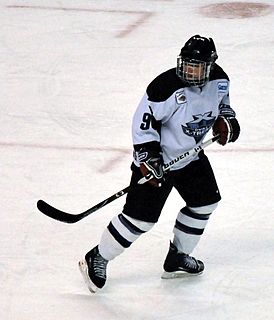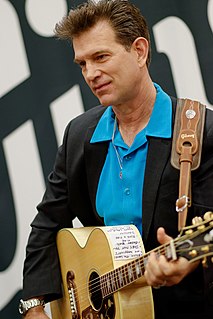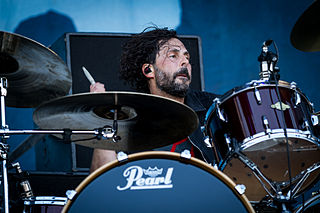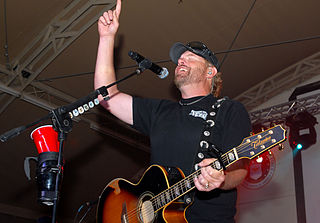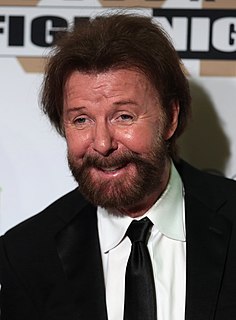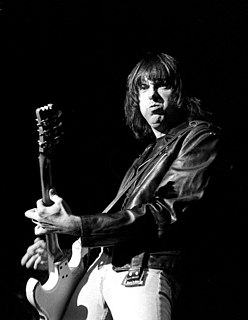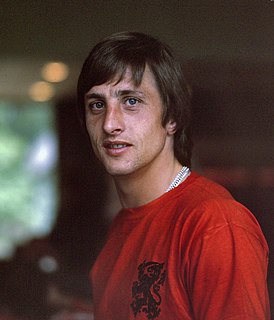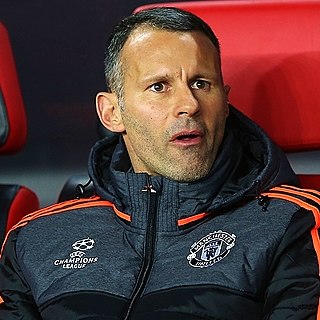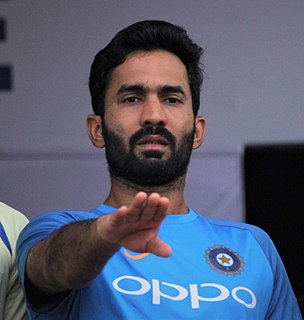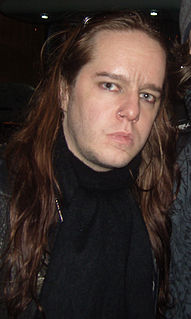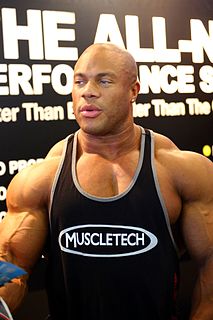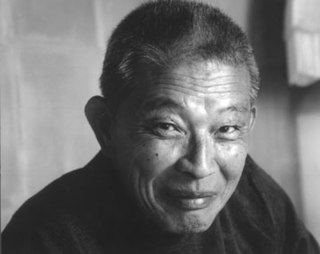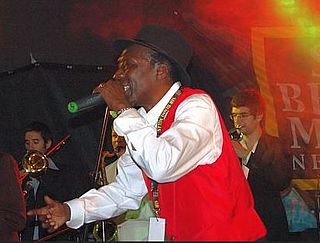Top 222 Tempo Quotes & Sayings - Page 4
Explore popular Tempo quotes.
Last updated on November 19, 2024.
My only talent is that I have a so-called big engine. I can attack on successive days - well maybe now not so often - or ride tempo at the front of the peloton for a week. I'm not a climber or a sprinter. Whatever makes the race sticky, fast and difficult is good for me. I'm just a big motor - I think I'm allowed to say that - and a fighter. I'll do whatever it takes to make the race.
I think we're really good about pushing each other in practice and we have high tempo and I feel like we have some of the best players in the world so just competing against one another and getting in there and pushing each other around and getting ready for that physical style of game coming up, we have to play hard and pretend it's a game.
Fandango was around before the Internet. Fandango is a Spanish-American dance. It's a lively tempo dance. It's almost like the tango. That's what it says in the Merriam-Webster [dictionary]. The second entry is [defined as] 'tomfoolery.' That's what it says in the dictionary, that's what I go by. I remember Queen saying it too on 'Bohemian Rhapsody.' When I was little I never understood what they meant by 'do the fandango.
A song, you know, you've got a tempo. You know,you've got something that is moving swiftly. You can't stop it, you know? Andit's designed to move swiftly from, you know, mouth to mouth, heart to heart,where a poem really speaks to something that has no time and that is - it's acompletely different perception.
You have to seduce the reader, manipulate their mind and heart, listen to the music of language. I sometimes think of prose as music, in terms of its rhythms and dynamics, the way you compress and expand the attention of a reader over a sentence, the way the tempo pushes you towards an image or sensation. We want an intense experience, so that we can forget ourselves when we enter the world of the book. When you are reading, the physical object of the book should disappear from your hands.
Sam [Phillips] wanted I Walk The Line up - you know, up-tempo. And I put paper in the strings of my guitar to get that (vocalizing) sound, and with the bass and the lead guitar, there it was. Bare and stark, that song was when it was released. And I heard it on the radio and I really didn't like it, and I called Sam Phillips and asked him please not to send out any more records of that song.
Hip hop dancing is more like choreography and it's more made up and you have to learn it. This, this Krump and Clowning you can't learn, it's just in you, the music moves you, you know. It's raw and organic, you know, it's like whatever comes out of you, you make it up tempo with the rhythm, you know, and it just comes out.
I was working as hard as a human being could work. That tempo hasn't changed. I just have more diversity and more companies, and now I've got 33 companies so my dance card is full. Four kids and three grandkids, but I love that passionate lifestyle. I love constantly growing, I love seeing and feeling that you can have an impact. And gradually it went from just coaching to actually running businesses because I've had experiences that were life changing.
I urge pupils when studying a work and in order to master its most important aspic, the rhythmic structure, or the ordering of the time process, to do just what a conductor does with the score: to place music on the desk and to conduct the work from beginning to end as if it were played by someone else, an imaginary pianist with the conductor trying to impress him with his will, his tempo first of all, plus all the details of his performance.
I disregard the proportions, the measures, the tempo of the ordinary world. I refuse to live in the ordinary world as ordinary women. To enter ordinary relationships. I want ecstasy. I am a neurotic — in the sense that I live in my world. I will not adjust myself to the world. I am adjusted to myself.
He said his friend Victor called it a lucky charm, and that it kept him safe in Iraq." She felt her pulse pick up tempo, and she brought her face close to Ben's. "Did you say Victor called it a lucky charm?" "Uh-huh." Ben nodded. "That's what he said." "Are you sure?" "Of course I'm sure." Beth stared at her son, feeling at war with herself.
Our modern economy privileges pure profit, momentary transactions and rapid fluidity. Part of craft’s anchoring role is that it helps to objectify experience and also to slow down labor. It is not about quick transactions or easy victories. That slow tempo of craftwork, of taking the time you need to do something well, is profoundly stabilizing to individuals.
I must say, the standard of football we play in League Two is better than I thought. I think, if you compared it with the fourth division in other countries, such as Italy, Germany and Spain, League Two is much, much better - and that's very positive. The intensity and the tempo is as high as the Premier League.
Well, you can't throw heavy, analytical, thought-provoking songs at people 24/7. It's been my experience over the last 20 years that on a rare occasion, in a live setting, if you can slow people down to listen to two good ballads, then you're doing pretty good. Then throw a tempo at 'em. Then have fun.
When you're really bummed out, the last thing you want to hear is up-tempo and positive. And it lets you know that you're not alone, that somebody has hurt before. It works the same way with chick songs as it does with political songs. When you hear somebody singing about these things, you know that you're not alone, that somebody else is suspicious of what's going on around us in the world. So you don't feel like you're crazy, and you feel like you might be able to make a difference.
I always love to do more. Whatever opportunity I get to make a play I'll make the most of my skills. To score touchdowns, to have energy, to light my team up, to get everyone riled up, to continue to go on the field and play at a high level. I just try to set the tempo, playing at a high level and everyone else can follow.
If you make a suggestion and [musicians] don't know what you mean, you have to be able to do it yourself. I often sit down on drums and show 'em just exactly what I want. And I do it and then say, "How do you do that?" It's because I know how it looks, I know what I want to hear, and I don't drop or rush any tempo. It ain't in my body, it ain't in my nephew's body.
And if I'm ahead, I can sometimes tell. It might mean I'm having a good swim, but pretty much, I'm just focused on how fast I'm going, how fast I'm feeling, and pretty much block everything out, the sounds, the sights, just kind of listen to the rhythm of the water, and just maintaining the same stroke, the same rhythm, the same tempo, and thinking about how I want to get my hand to the wall.
I would describe my style for those who haven't listened to my music as definitely..up-tempo.
I try to have something nice, something people could dance to. It's kind of hard though to describe my sound in one record because I think when I approach music I try to do something different every day. Do a different vibe.
Some bands blow it before they even play. The most important moment of any show is when a band walks out with the red amp lights glowing, the flashlight that shows each performer the way to his spot on the stage. It's crucial not to blow it. It sets the tempo of the show; it affects everyone's perception of the band.
Music is made of what we do when we move, and we can only move in certain ways, in certain ranges of tempo because of the inherent constraints that our bodies offer, or you can call them 'affordances' - that's another word for me. It's a little more positive; doesn't make it seem like a limitation, but rather, a set of opportunities. You can say that that's part of music making, but there's also the imagination. The power of the imagination is kind of trumping - sorry to have to use that word.
The hardest thing about an easy match is making a weak opponent play poor. A poor player isn't poor because he tends to kick the ball in his own goal. It's because when you put intense pressure on him, he loses control. So you have to increase the tempo of the game and he'll automatically give the ball away.
You can definitely train your awareness to be even better than it is. Of course, you start with a certain point of feelings and awareness on the pitch. But I think the more you get in positions, the more you get used to it, the more you get used to the tempo of your team-mates, everything. It feels more and more natural, and quicker and quicker.
Even when I teach my MMA classes in the gym, it's hard to teach what I do. It's more of state of flow, a state of feel. It's not a robotic thing like one, two, three, kick, one, two, three, switch, jab, cross. It's completely unorthodox. Everything is about rhythm, tempo and pace. It's a different style, man.
What makes games so exciting is that's a whole other- there's all sorts of other considerations on what music is supposed to achieve and what you're attempting to support, it's not uncommon to think of your music and to think of the way your orchestra plays for something like Jack and Daxter where you start with- you know because it has to change tempo and intensity as the action gets more intense.
I’d go for Scholesy as the club’s greatest ever player. I’ve seen him do things that no other player can do. The way he can control the tempo of games, and his range of passing, are both incredible. We’ve seen over the years that players just haven’t been able to get near him. And you can’t forget his goals either.
I try to maintain an even tempo in all the games. Sometimes you play well and sometimes you get out. When you get out, you feel it is a wrong shot. Most players in tough situations play shots that could be out, but over time you refine that and give yourself the best chance of performing, the more you play in such situations.
I don't use a Beatmap; I don't use any click track. Any time I count off, it's just in my heart. Sometimes I'll go off the feel of a crowd, like if they way they're bouncing is a little quicker than the song, I might kick up the tempo a little bit. I see where the crowd is at. It's nothing drastic, but all the tempos are from my internal clock.
Movies always are open to being remade because times change so much, and the tempo of movies changes. I think of it like a James Bond. They can have different actors play the same role... I've had people come up to me and say, 'We want to remake 'The Jerk' with so and so.' And I say, 'Fine.' It just doesn't bother me. It's an honor actually.
In England everything is liberalised. Within certain boundaries and rules everybody can do what he likes. Maybe London's society has a different tempo, a different dynamic. London is fast, productive, creative but it is not England. If you want to transfer that to football, you could say: in the four big English clubs and maybe in the one or two behind them there is a top level. Everything that comes after that rather mirrors English society. It's honest, fair and hard, sometimes also fast, but not always so perfect.
Our time has produced a need for contrast. This has been achieved not only in the external appearance of plastic expressions of coulor and matter, but also, and chiefly, in the tempo of life and in the techniques related to the daily, mechanical functions of life; namely standing, walking, driving, to lying and sitting - in short, every action which determines the content of architecture.
Constant tension should be applied to the last five reps of every working set, meaning, do the first 5-6 reps normal tempo, and the last few reps should be held for at least two seconds at the peak of the contraction. This allows your muscles to have more time under tension, and you work different muscle fibers.
I had no idea how difficult Sondheim's music would be. All through the rehearsals, I kept flubbing. There were so many tempo changes. I could never get through the opening number without any mistakes. One day, I went up to Hal Prince and offered to leave the show. He laughed it off. He said, 'Don't be silly. That's why we have tryouts.'
I was off the scene for a while during the ska period and when I returned and joined the Treasure Isle studio, I came there with a different mood. The musicians picked up on that and we kept on going in that direction. The music became slower, which gave the bass player the time to play more notes. In 1965 I named it rocksteady. The first rocksteady song was 'Girl I've Got A Date'. That one was still a bit up-tempo, leaning towards ska. It turned the tide and made Treasure Isle the number one studio.


